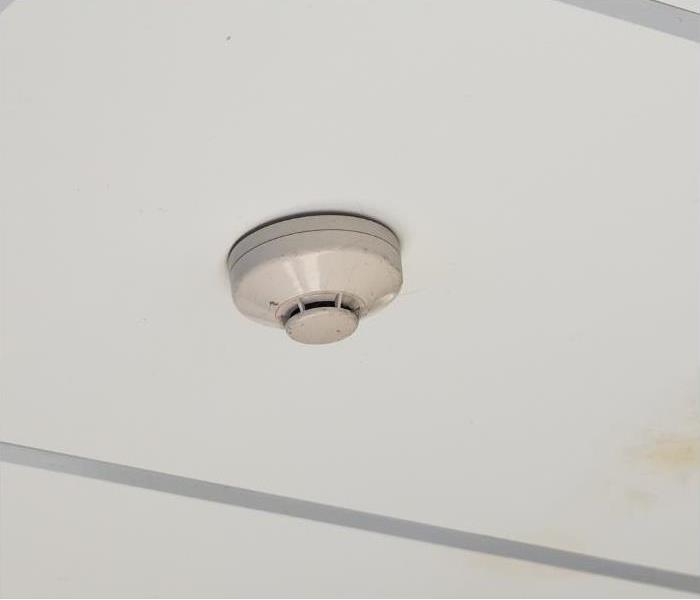Photoelectric or Ionization: Which Smoke Detector is Right for You?
5/21/2021 (Permalink)
Learn about the two main types of smoke detectors to install in your property
When it comes to protecting your property from fire, safety is the most important thing. You want to ensure that you are alerted quickly and can escape safely with minimal damage if a fire starts in your home or business. But which type of smoke detector should you install?
Both photoelectric and ionization detectors use sensors to sense smoke and fires differently based on where they think the source of the fire started.
Understanding the differences between the two will help you make the right decision about the smoke alarms protecting your property. Keep on reading to find out what smoke detector you should install!
What is an ionization smoke detector?
An ionization smoke detector uses a sensor that responds to both visible and invisible combustion particles by releasing electrons that travel through the air. When airborne molecules collide with the internal sensing chamber an electric charge will trigger the alarm.
Unlike photoelectric alarms, this type of smoke detector will not detect fires in areas with no smoke or fire present (i.e., false alarms). It has fewer detection levels than photoelectric detectors because it does not have any kind of light-sensing component like photoelectric sensors do. Ionization smoke detectors detect fast flaming fires and are best installed in kitchens and bathrooms and places you may leave unattended for long periods, such as your home office.
What is a photoelectric smoke detector?
A photoelectric smoke detector uses a light-sensing component to detect slow smoldering fires. The sensor is either an array of LEDs or an infrared beam, which activates when the light from these devices reflects off smoke particles in the air. When smoke is sensed, the alarm will sound and notify you that there has been a fire detected in your property.
Photoelectric vs. Ionization Smoke Detector: Which to choose?
Both photoelectric and ionization smoke detectors have their strengths and weaknesses. The main difference between photoelectric and ionization is that one has an airborne sensor that senses fires through light sensors (photoelectric). At the same time, the other relies on particles being released into the air (ionization). Which smoke detector you choose to install will depend on your needs for detection.
Ionizing Smoke Detector: These detectors work best when installed in kitchens and bathrooms as well as places you may leave unattended for long periods, such as your home office.
Photoelectric smoke detectors are best installed in places where you are most likely to see the fire, such as your kitchen during a grease fire.
The IICRC certified professionals at SERVPRO can not say that one type of smoke detector is better than the other. We recommend installing both ionization and photoelectric smoke detectors to ensure maximum detection of the various types of fires.
Call SERVPRO for fire or smoke damage restoration.
Call SERVPRO of Union, Towns, Fannin & Gilmer Counties if, unfortunately, your smoke detectors didn't do the job quick enough and you are left with fire or smoke damage; we are skilled professionals in the fire damage restoration field who can remove all soot webs and restore your property to a pre-disaster state within no time.
Fire disasters always come without warning, and such an unfortunate thing can happen to anyone. We respond quickly to emergencies, 24 hours a day, 365 days a year because we know that every second will count when minimizing property damage.
At SERVPRO, we truly understand how devastating it can be to find yourself in a fire damage situation. Contact us today for immediate help!






 24/7 Emergency Service
24/7 Emergency Service
